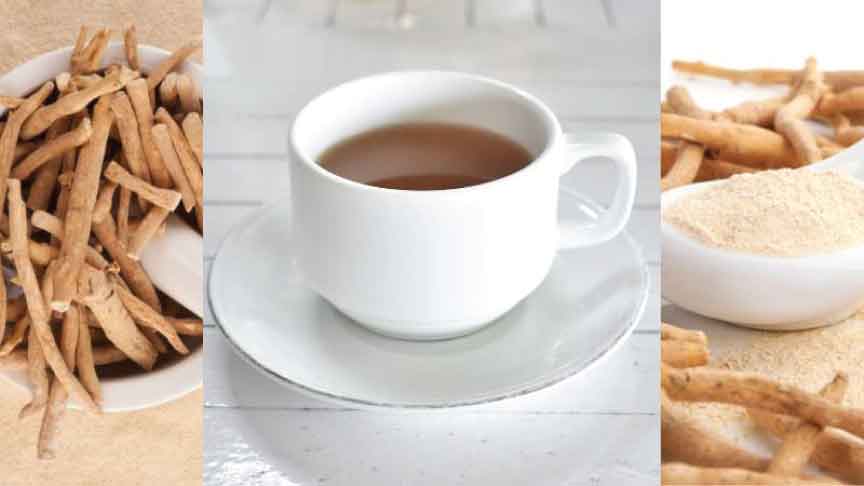
How to Make Ashwagandha Tea
Recipe by GennysserAshwagandha Tea Recipe
3
servings20
minutes20
minutesINGREDIENTS YOU WILL NEED
1 Tbsp 1 ashwagandha root powder
3 cups 3 water (filtered or distilled)
1 1 slice of lemon
1 Tbsp 1 agave nectar or any honey of your choice
INSTRUCTIONS
- Add the ashwagandha root powder, slice of lemon and the 3 cups of water into a saucepan.
- Allow the ingredients to cook in low heat for 10 to 15 minutes, uncovered.
- Turn the heat off and let it stand for an additional 5 minutes.
- Strain the tea from the pot to a cup using a tea or coffee strainer.
- Serve in a cup and add a tablespoon of agave nectar or any honey of your choice.
Benefits of Ashwagandha Tea
(Withania Somnifera)

Give your immune system a boost with this Ashwagandha Tea Recipe! This tea is often compared to ginseng tea for its calming restorative action, helping to relieve stress and exhaustion. The ashwagandha herb contains adaptogens which help the body deal with stress and renew bodily balance. It has a very unique flavor profile, often being a very bitter, earthy and astringent taste with a very mild sweetness.

Benefits of Ashwagandha
- Stress and Anxiety: The herb is known to help the body adapt to stressors and may lower cortisol levels. Ashwagandha is more of a sedative than a stimulant. It is useful in conditions involving chronic weakness and nervous debility. It is a good remedy to quiet anxiety state and overactivity and makes an excellent restorative for old age and convalescence.
- Cognitive Function: Ashwagandha has potential benefits on brain health, its contents having numerous neuroprotective benefits. Long-term ashwagandha strengthens cognitive tissue. The root and fruit has been used traditionally as a remedy for senile dementia.
- Energy and Vitality: The apoptogenic properties of ashwagandha help with increased energy, helping the body respond to physical and mental challenges.
- Aphrodisiac Properties: Ashwagandha is valued for its aphrodisiac properties and may help individuals with improving erectile dysfunction. The herb may help to enhance fertility for both men and women.
- Supports Balanced Immune Function: Ashwagandha increases vigor and raised white blood cell count, helps fight chronic inflammation such as fibromyalgia and psoriasis. The root is useful for anemia and the berries can be taken in convalescence. Both root and fruit are used to treat respiratory conditions such as asthma and bronchitis.
Ashwagandha has been used in traditional Ayurvedic medicine for over 4,000 years. The plant is native to the Indian subcontinent and it is often called Indian ginseng.
If you liked this recipe, I encourage you to try my: Ginseng Tea Recipe.



